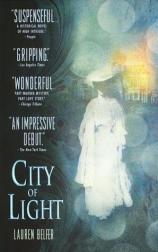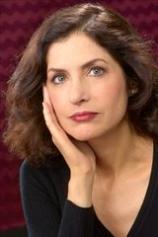Excerpt
Excerpt
City of Light

On the first Monday in March 1901, in the early evening when the sound of sleigh bells filled the air, a student unexpectedly knocked at my door. I was accustomed to receiving visitors on Mondays before dinner, when my drawing room was transformed into a salon. Bankers and industrialists would stop by my comfortable stone house attached to the Macaulay School, knowing they would find professors and artists, editors and architects.
In those days, Buffalo was flush in an era of extraordinary economic prosperity and civic optimism. The city had become the most important inland
port in America because of its pivotal location at the eastern end of the Great Lakes.Indeed, at the turn of our century, Buffalo had taken its place among the great cities of the United States. Many of the visitors to my salon were from New York City or Chicago, men who came to Buffalo at the behest of our public-spirited business leaders to offer their best work to the city. These included architects Louis Sullivan and Stanford White; sculptors Augustus Saint-Gaudens and Daniel Chester French. Years ago I met architect Daniel Burnham and he invited himself for sherry with a man whose name I now forget, and came again on his next visit to Buffalo. Soon they all came, presenting their cards with a note: "At the suggestion of our mutual friend . . ." Then the local people of distinction, with such family names as Rumsey, Albright, and Scatcherd, sensing an opportunity, came calling too.
They could do this only because I was considered unmarriageable. Because I was a kind of "wise virgin"--an Athena, if you will--these men granted me my freedom and I granted them theirs. Of course there were women at my salon--doctors, architects, artists. Those who had husbands came with them; those who did not came alone, or with the other women who were their life companions.
I liked to think that my Monday evening salon was the only place in the city
where men and women could mingle as equals. The married and marriageable women of the upper reaches of the town were hidden away, given little room for interests beyond clothes, children, entertaining, and a bit of work among the poor. They led a limited life, which filled me with sadness and which I tried at Macaulay to change. Ieducated the young women placed in my care--the daughters of power and wealth--to expect more. I liked to think that I'd trained a generation of subversives who took up their expected positions in society and then, day by
day, bit by bit, fostered a revolution.
In the past two years, the stream of visitors to my salon had become ever more fascinating and their concerns ever more urgent as they planned the design and construction of a world's fair called the Pan-American Exposition. Yes, Buffalo was to be an exposition city now, in the tradition of Philadelphia and Chicago. The Pan-American would celebrate the commercial links between North and South America as well as America's technological breakthroughs, particularly in the area of electricity, which was being developed at nearby
Niagara Falls. Most important, the Pan-American's very existence symbolized and confirmed Buffalo's new, vital place in the nation.
The exposition site was less than a mile from my home, and over eight million people from around the country and the world were expected to visit the fair during the coming summer. Debates about lighting, coloring, and schematic statuary took place before my fire, the gentlemen tapping their pipes against the mantel. Sometimes they called my gatherings a "saloon" instead of a salon, as if they were visiting the Wild West and I were Annie Oakley. I tried not to show them how much their teasing pleased me.
But on this particular Monday evening in March, I sent my visitors away by seven. There was a wet snow falling and a chill dampness in the air that made me want to be alone in front of the fire. My guests grumbled halfheartedly, though some of them were privately grateful, no doubt, to return home; here on the shores of Lake Erie we respected the icy storms of early spring. And although they might not admit it, morethan a few of my out-of-town visitors probably yearned to leave business behind and move on to a relaxing game of whist in the mahogany-paneled confines of the all-male Buffalo Club.a] Even so, exposition president John Milburn was chagrined to be forced to cut
off his conversation with chief architect John Carrere. "You're sending us out to talk in the snow?" he queried in the hallway.
"Absolutely," I replied. "You should walk the exposition grounds in the snow
and evaluate your work right there--much better altogether." The men laughed as they gathered their coats and made their way out the door.
After they were gone, I sat in my rocking chair, resting my head, luxuriating in the evening. Then in the quiet, I heard my favorite sound: sleigh bells jingling on harnesses as the horses trotted down Bidwell Parkway, sleigh gliders swishing through the snow. At this hour, bejeweled couples cloaked in fur against the cold were on their way to dinner parties; snowstorms were never permitted to interfere with the social swirl. Closing my eyes, I conjured a scene in my mind: a dining room with French doors and a coffered ceiling, a long table laid for twelve, freshly polished silver, candlelight throwing rainbows through the crystal. I was forever apart from that life, observing it, never living it. Nonetheless I pictured myself reclining on a sleigh, the harness bells dancing, a bison skin pulled around me for warmth as snowflakes touched my face and I was carried to dinner at the estate of John
J. Albright or Dexter P. Rumsey.
A knock at the front door intruded on my thoughts. Not wanting to be rude to
latecomers, I rose and went into the hall. My Polish housekeeper, Katarzyna,
had already opened the door, but she had not welcomed the visitor.
"People gone now. Visiting time finished," she said with a cut of her hand, as if to shoo the caller away.
The reason for her behavior was clear: One of my students was at the door, peering around Katarzyna to find me. Millicent Talbert, age thirteen, mature-looking for heryears but possessed of an innocence and earnestness which at school made her the one who always missed the jokes.
"Miss Barrett?"
There was a hint of the Middle West in her speech. Millicent was an orphan who had come to Buffalo from Ohio to live with her aunt and uncle, who had adopted her. In the unlit doorway, Millicent was a shadow against the white of the evening.
"I'm sorry, Miss Barrett, I don't want to bother you, but--" She paused, glancing at Katarzyna. "May I speak with you? Just you, I mean. I watched from the corner and waited until everyone left, really I did, Miss Barrett, I didn't want to disturb you. I didn't want to cause trouble."
City of Light
- Mass Market Paperback: 689 pages
- Publisher: Island Books
- ISBN-10: 044023512X
- ISBN-13: 9780407101838








